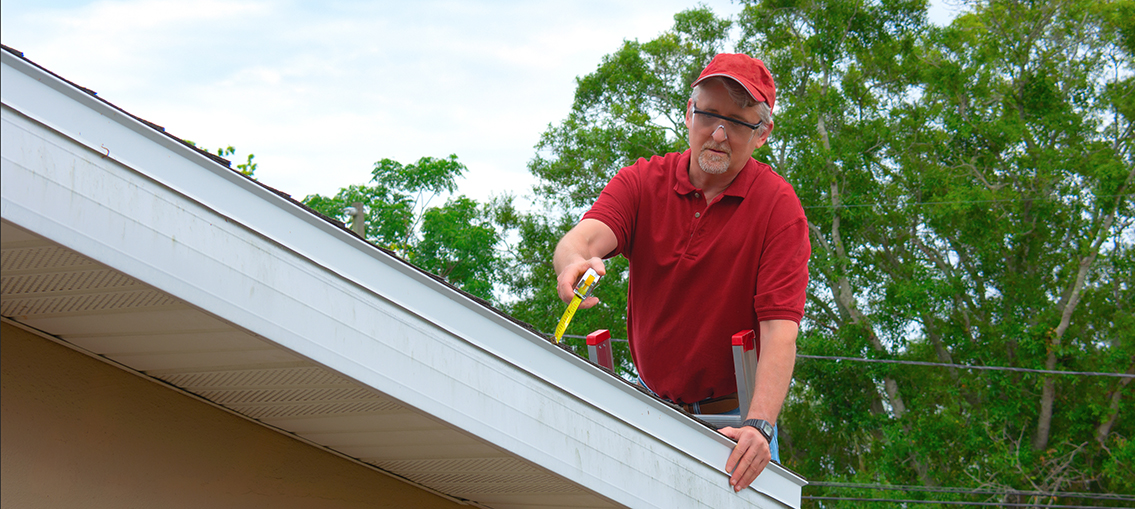April is National Home Inspection Month, kicking off the real estate market busy season. It is the time of year that home listings begin to increase, and more buyers are joining the market to search for new homes. With the real estate market ramping up, home inspectors will be preparing for homebuyers to schedule their home inspections.
Throughout the pandemic, the real estate market has witnessed highs and lows, between soaring home prices and historically low mortgage rates. The feverish demand for homes ultimately led to some homebuyers committing less than savory practices to ensure their offer was accepted, such as waiving their home inspection contingencies. While their offer may have been the one accepted, they may have doubts and regrets about the home after moving in.
In honor of National Home Inspection Month, we highlight the importance of home inspection and the benefits and protection it affords homebuyers. For homebuyers trying to navigate today’s real estate market, it can become a tricky balancing act to find a home that fits your needs and budget and promptly close on it. A home inspection is a crucial step that can help lead to successful homeownership.
Why Your Home Inspection is Important
Skipping out on a home inspection puts the home buyer at significant risk. For many, buying a home will likely be the single largest purchase of their lifetime. A home inspector is an objective third-party consultant acting on the buyer’s behalf, delivering a report about the home’s condition to provide the buyer with vital information to make an educated decision on their purchase.
Viewing the photos provided on the listing and visiting the home in person is only the tip of the iceberg when getting an understanding of the home. Cosmetic features play a part in determining whether the home is right for you. However, cosmetic features are often renovated relatively cheaper than significant issues associated with the home’s “bones” hiding under the surface.
The average person can easily miss vital issues without the appropriate knowledge, expertise, and tools needed to identify them. Once the home is purchased, the responsibility to remedy problems and cover costs falls onto the new homeowner, costing thousands of dollars.
Home Inspection Alerts You to Defects and Potential Health Risks
During the inspection, your home inspector will methodically move through the home conducting various tests, taking measurements, and assessing the various systems’ conditions and components. Throughout the inspection and further detailed in the home inspection report, your inspector will highlight any defects they come across, both minor and significant. Every home will have some defects found during the inspection, but many minor defects won’t impact the transaction, such as normal wear and tear.
However, major defects are a different story. A roof that needs replacing, severe foundation cracking, or old wiring in the electrical system are all examples of major defects and require invasive and expensive repair costs. In many cases, significant defects pose a dangerous risk to the health and safety of the residents and the property itself. If an inspector comes across any major defects like these, they alert the homebuyer to their severity. With this information, you can work with your real estate agent to plan your next move, whether renegotiating or walking away from the deal.
Whatever decision is made, it’s better to be aware of significant defects early to plan the next steps accordingly. Skipping a home inspection only to uncover a major defect after the home is purchased will not provide many options, and it will be your responsibility to handle.
Home Inspection Helps You Fully Understand Your Property as the Homeowner
Defects and issues aren’t the only matters identified during a home inspection. The inspector will assess the condition of the structure’s systems and components, providing information about expected working lifespans. Even if they are in good shape at the inspection, almost all systems will wear out over time and need repairs or replacement at a certain point. For example, roofs will last 30 years, while kitchen appliances like refrigerators or dishwashers work well for approximately ten years.
The inspection report will include the age of different structures, systems, and appliances. The inspector could recommend repair or replacement if anything is on its last leg. Keep track of such expected life spans, plan out follow-up inspections, and prepare for repairs or renovation. For example, if the roof is 20 years old at the time of purchase, plan to call a roofing professional in ten years to inspect and point out any needed repairs.
Proper maintenance can extend the lifespan of the different systems and structures, and a home inspector will often be able to identify if previous owners have completed such care. The home inspection report is a valuable reference tool for tracking various home systems and planning out future maintenance.
Final Thoughts
A home inspection is a small yet highly critical step to complete during the home buying process that can save money and headaches in the future. Typically, a home inspection will cost around $300-$1000 and take two-to-four hours, all of which are dependent on the size and state of the home. The cost of a home inspection is a fraction of compared to the overall cost of the house, but the peace of mind it can provide is priceless.



